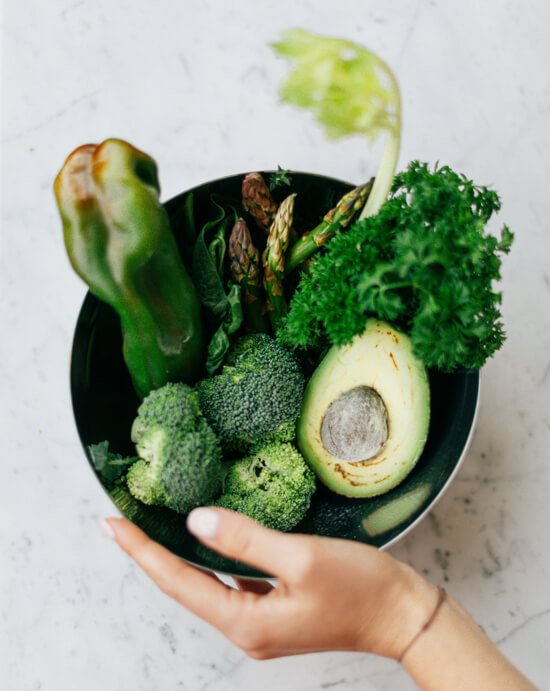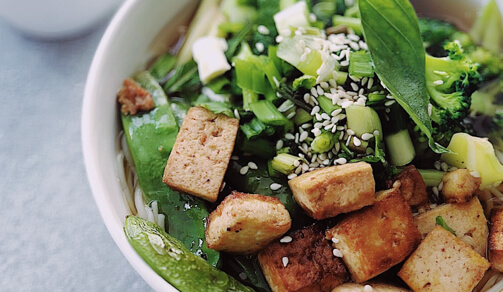Last Updated on 6 Giugno 2024 by Mattia Settimelli
Perché Devi Mangiare Grassi per Bruciare Grassi
Riceve spesso una cattiva reputazione, ma aggiungere un po’ di grasso alla tua dieta potrebbe essere la chiave per una silhouette più snella.
Per molto tempo, abbiamo pensato che gli avocado fossero utili solo per preparare guacamole istantaneo e un burger californiano decente ogni tanto. Tuttavia, queste piccole granate nutritive hanno avuto un impatto esplosivo sulle nostre diete per tutto quel tempo. In che modo?
image courtesy: Unsplash
They’re injected with a key ingredient for keeping up good, muscle weight: fat.
Pause… fat can enable us to keep up our weight? Fat doesn’t make us fat? Precisely.
Fat is not bad. First of all, it’s basic for ordinary development and advancement. Dietary fat additionally gives vitality, secures our organs, keeps up cell membranes, and enables the body to assimilate and process nutrients. If this ain’t enough for you, it enables the thermogenic effect in the body.
However, fatty foods ain’t all the same. Sure pizza, hamburgers, french fries, and the likes, can add up to gaining pounds and lower your overall health, but the dieticians are learning that is the overall nutritional mix of these foods to blame, — not their saturated fat. Yes, good old research (we’re talking decades ago, though)showed that
saturated fatty acids, a type of fat that’s “saturated” with hydrogen and usually solid at room temperature, raised LDL (bad) cholesterol levels.
However, a reconsideration of that examination has demonstrated that they raise HDL (great) cholesterol the same amount of, if not all the more, shielding the body from undesirable cholesterol levels and coronary illness. The latest research shows that we don’t have to demonize one nutrient or the other, but just take care of our overall nutrition range, equilibrium, and immune system protocol.
In fact, if you are on a cutting cycle to get shredded or lose those pounds you gained during long and cold winter acting like a couch-potato, you have to start loving and indulging in both monounsaturated (MUFA) and polyunsaturated (PUFA).
Ok, got it, I heard you say, but why is that?
God’s nutrition, as we call it (fish, seeds, nuts, leafy vegetables, olive oil, and of course, avocados) are full of top quality nutrients. They remove LDL cholesterol from arteries, help the heart keep up the pace over the years, and help you burn fat massively without cutting calories.
All reputable sources, including the British Journal of Nutrition, declare that test
participants consuming the most unsaturated fatty acids have lower body- mass indexes and less abdominal fat than the opposite group.
Not so far ago, the misunderstanding and misinformation, created a marketing monster: all main brands started producing and advertising low-fat or zero-fat food and nutrition products and consumers followed churning down everything with a mere 1% fat content. It’s healthy, right?
Totally, extremely wrong. Aside from depriving our bodies of an essential nutrient, low- and no-fat diet movements have skyrocketed obesity rates. Ready to know the reason?
Fat provides the main aspect of the foods we love: Taste. Instead of fat, manufacturers had to load the foods with sugar and salt, which are nutrient-free, to increase flavor. And sugar and salt are the real enemies. They cause obesity and adrenal chronic fatigue, other than bones and joints diseases.

Brucia, grasso, brucia
I carboidrati, le proteine e i grassi sono i tre principali macronutrienti per l’energia del corpo: un grammo di grasso fornisce più del doppio dell’energia di un grammo degli altri due. Senza grassi, niente calorie da bruciare, niente carburante per il tuo corpo.
Inoltre, il grasso sottocutaneo (pancia, fianchi, glutei, ecc.) viene bruciato più rapidamente quando si consuma più grasso.
Soddisfami, tu grasso!
Essendo non così facile da digerire, il grasso rimane nel tuo sistema digestivo più a lungo, causando una sensazione di sazietà e aiutandoti a evitare di avere di nuovo fame.
Il risultato? Più perdita di peso.
Il fattore felicità con il grasso
Cibo delizioso! Sì, ti rende più felice rispetto a una dieta eccessiva e a costringerti a un regime calorico molto basso (non buono per la tua salute).
Le ricerche delle principali università mostrano che le nostre papille gustative possono rilevare i grassi negli alimenti, il che aiuta a spiegare perché i cibi a basso contenuto di grassi non placano il nostro desiderio di grassi.
.

Costruire i Muscoli con l’Aiuto dei Grassi
Mangiare grassi buoni insieme a un programma di esercizi efficace può aumentare la massa muscolare. Studi precedenti hanno scoperto che gli acidi grassi omega-3 stimolano la sintesi proteica muscolare negli adulti più anziani e possono contrastare la perdita di massa muscolare dovuta all’invecchiamento.
Numerosi nutrienti, inclusi le vitamine A, D, E e K, sono solubili nei grassi, il che implica che il corpo non può assorbirli senza grasso. Se il tuo corpo non assorbe i nutrienti in modo appropriato, questo può portare a carenze vitaminiche e accelerare la secchezza della pelle, la cecità, le ossa fragili, i dolori muscolari e la coagulazione del sangue anomala.
Queste vitamine sono anche essenziali per l’energia, la concentrazione e la salute muscolare, tutti elementi che contribuiscono a mantenere un peso sano. La vitamina E, ad esempio, è un potente antiossidante e mantiene attivo il tuo metabolismo, mentre i livelli di vitamina D nel corpo prevedono la capacità di perdere grasso, specialmente nella zona addominale.
Quindi, mentre puoi caricare il tuo piatto di insalata con nutrienti ricchi come spinaci, pomodori e carote, devi davvero ringraziare l’olio d’oliva per aver trasportato le vitamine dell’insalata al tuo corpo.
Vedi le nostre ricette super gustose
| ! |